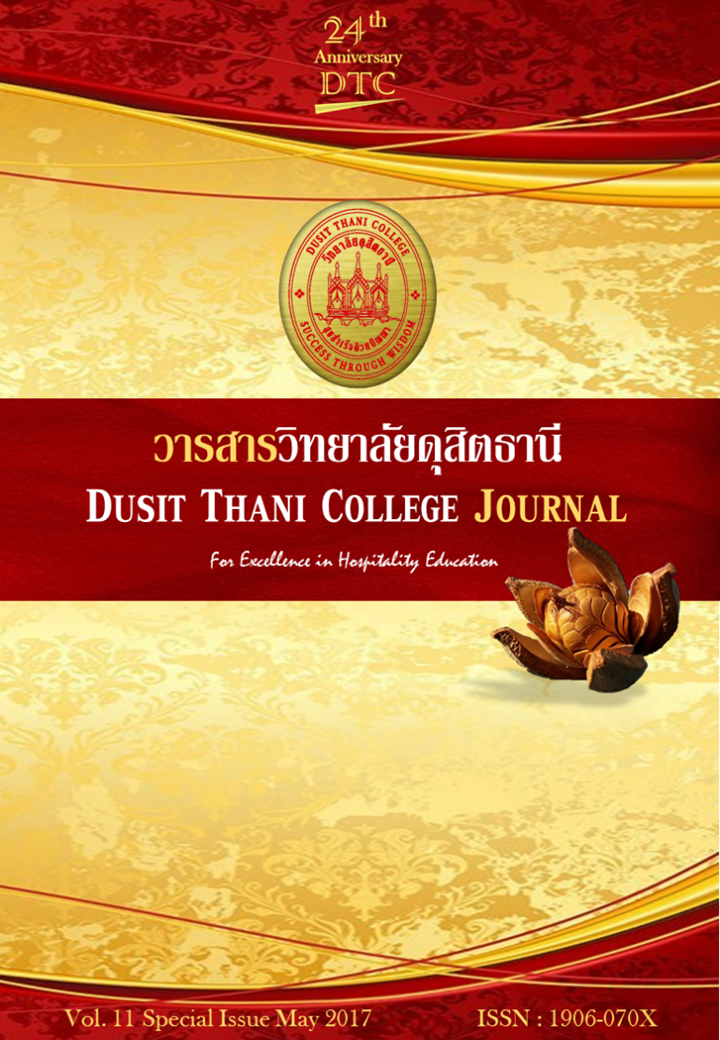Thai Sikh’s Identity: Self - Expression in Society
Main Article Content
Abstract
The purpose of this article is to explain how identity can be identified through the identity of Thai Sikhs who are from India and local Thai Sikhs nowadays. They can live happily in society and express themselves through their own identities. The study was carried out through observation, interview, existing studies and other media. Sikhs have ancestors from Punjab, India. They settled in Thailand by conducting military service and as merchants. Nowadays, the Thai Sikhs can pursue a wide range of professions. The prominent identities of Thai Sikhs are “5 Kor” symbol, Gurudwara Sri Guru Singh (a religious establishment) and Jabir language which are accepted in Thailand. Thai Sikhs have a way of changing their identities in various ways to express themselves appropriately in Thai society without any conflict, namely, the change of their external personality to fit into society, including modification of thoughts, learning and proper modification of some principles or guidelines to fit societies.
Article Details
Article Screening Policy
- All research and academic articles to be published must be considered and screened by three peer reviews in the relevant field / article.
- All articles, texts, illustrations and tables published in the journal are the personal opinions of the authors. Editors don't always have to agree. And no responsibility whatsoever is the sole responsibility of the author.
- The articles to be published must never be published. Where did you first publish? And not in the consideration of other journals If the audit found that there has been a duplicate publication It is the sole responsibility of the author.
- Any article that the reader sees as being plagiarized or impersonated without reference. Or mislead the work of the author Please let the journal editor know it will be your greatest blessing.
References
Khongthiam, Daranit. (2014) . Self Identification of the Online Social Network Users on
www.YouTube.com. D. M. Com.Arts, Graduate School, Bangkok University
Narksuwan, Nakrob. (2014) .Thai Sikh: model of conservation and succeeding to identity for peaceful existence in Thai society. Doctor of Philosophy (Cultural Science), Mahasarakram University
Dokbua, Fuen. (2011) . Comparative religion. 4th edition. Bangkok: Silapabannakarn Suriya-amrit , Suthep (Dildar Singh Gorowara). (2014) . What is Sikhism. 6th . Bangkok : No Print Place
Siri Guru Singh Sabha (2013). Guru Nanak Sahib History. Bangkok: No Print Place
Siri Guru Singh Sabha. (No Year) . Guru Gobind Singh Sahib History. Bangkok: No Print Place
Siri Guru Singh Sabha. (No Year). Dhamma Guide (Sikh religion). Bangkok: No Print Place
Fuengfusakul, Apichaya. (2003) . Identity. Bangkok: National Research Council of Thailand
Bandura, Aribert (2017). Social Learning Theory. (online) Available: Accessed 15 March 2017
https://www.simplypsychology.org/bandura.html
Morgan, Brian. (2017) . Identity Presentation: The Construction of Identity in Asynchronous
Discussion (online) Available: http://www.qualitative –research.net/index.php/fqs/article/view/1006/2175 Accessed 10 April 2017
Rogers, Carl.Z 2017). Self-Theory. online Available http://annplod.blogspot.com/2016/01/self-
theory.html Accessed 15 March 2017
Jenkins, Richard. (1996). Social Identity. London: Routledge
Berger, Peter L. and, Luckman, Thomas. (1967). The Social Construction of Reality: A Treatise
in the Sociology of Knowledge. USA: Anchor Books
History of Sikhism. (2016). (online) Available:
of Sikhism Accessed 6 Dec. 2016
Sahib, Nishan. (2016). The Sikh Identity :5Ks. (online) Available https://www.allaboutsikhs.com/
introduction/the-Sikh-identity-5KS Accessed 8 Dec. 2016
Gurdwaras. (online) Available: https://www.sikhs.org/gurdwara.htm. Accessed 17 Dec. 2016
Punjabi. (online) Available: http://www.omniglot.com/writing/punjabi.htm Accessed 28 Dec. 2016


